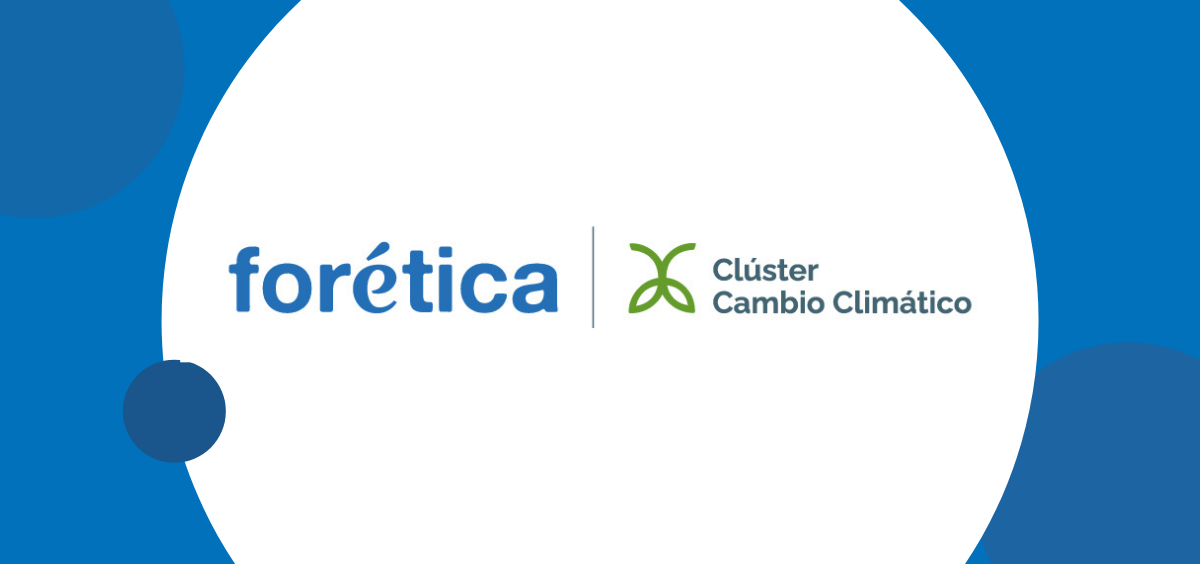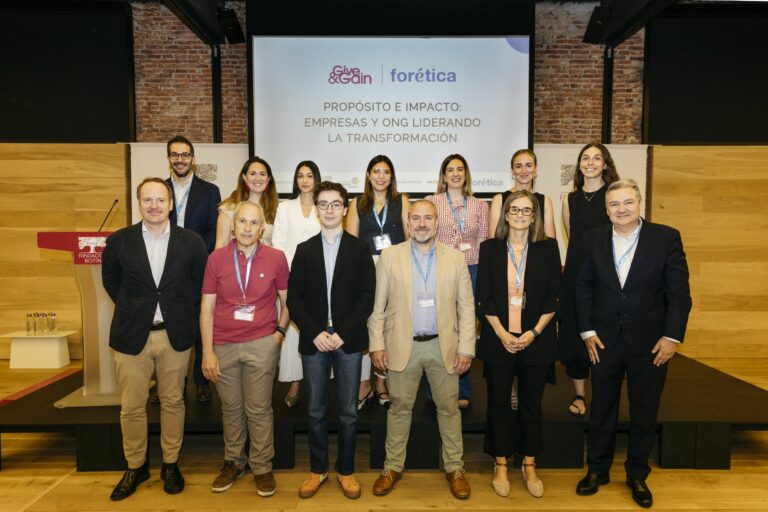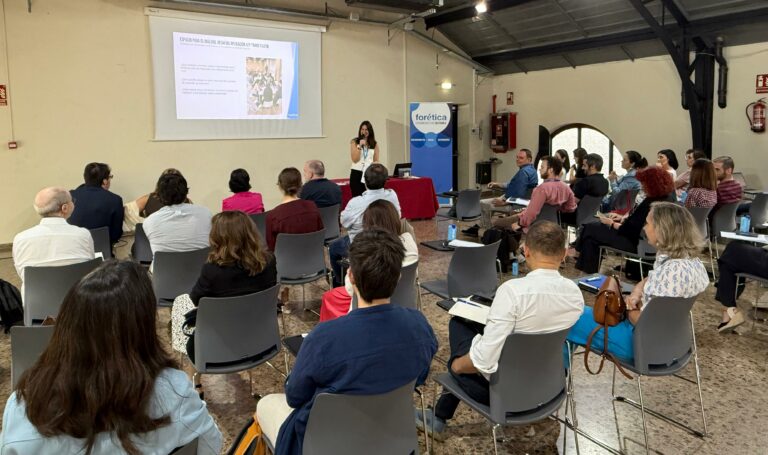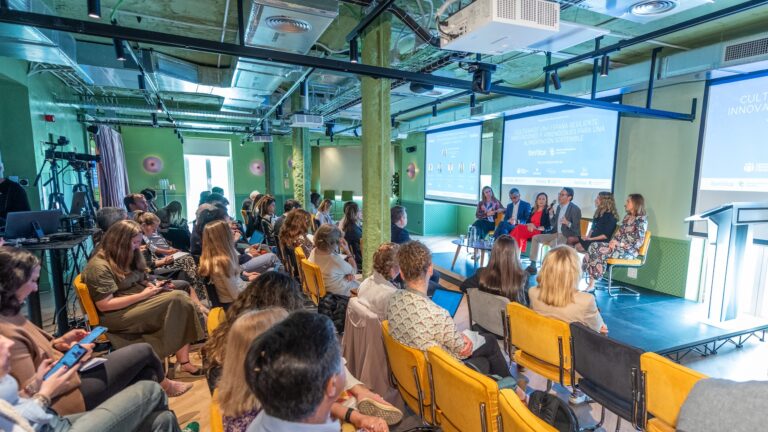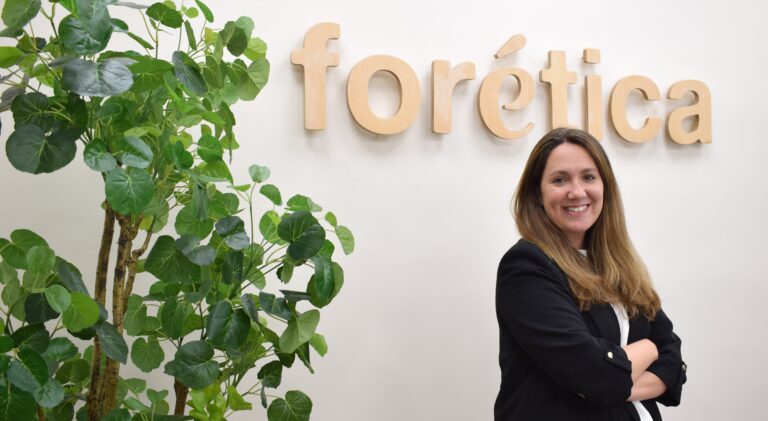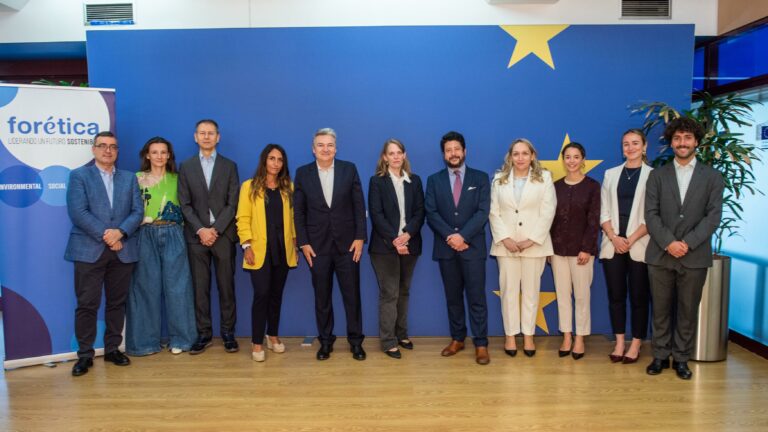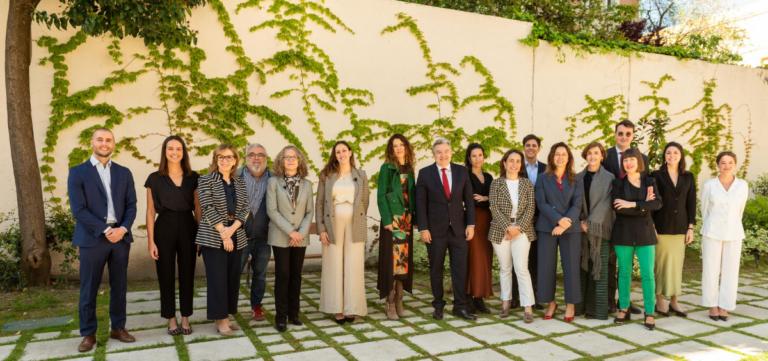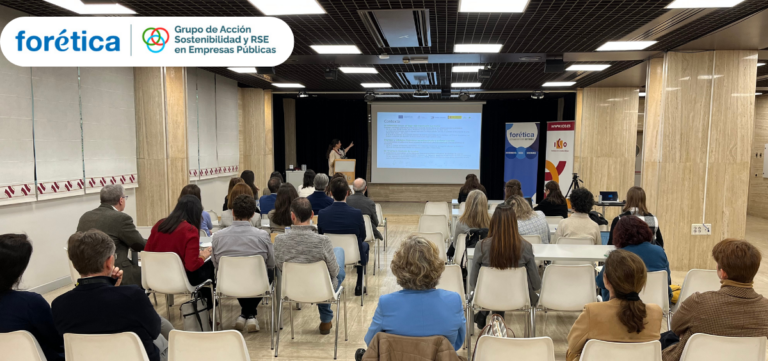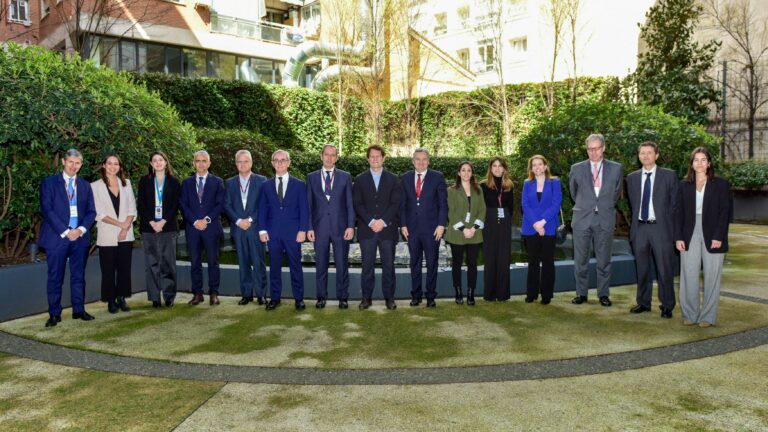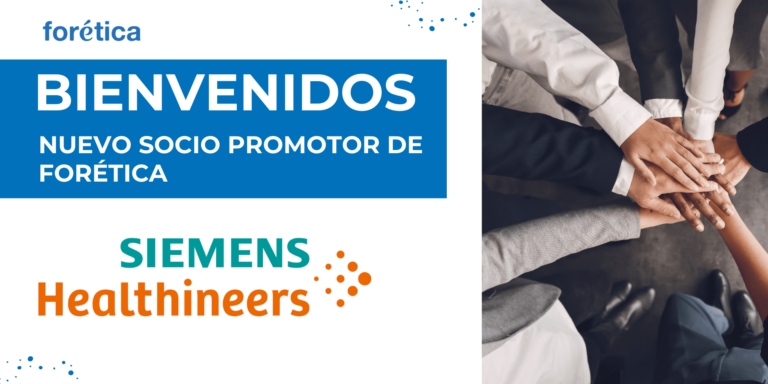- Forética ha presentado el informe ‘Hacia la descarbonización de la cadena de suministro. Colaboración con proveedores, la pieza clave’, que incluye cinco recomendaciones para la acción empresarial en el trabajo conjunto con los proveedores para alcanzar el objetivo de cero emisiones netas
- El Clúster de Cambio Climático, impulsado por Forética y compuesto por más de 80 grandes empresas -encabezadas por Bankinter, Chiesi, ENGIE, Grupo Cooperativo Cajamar, LafargeHolcim, Naturgy y Nestlé-, comparte las tendencias más destacadas, retos y oportunidades en materia de descarbonización de la cadena de proveedores
Forética ha presentado el informe ‘Hacia la descarbonización de la cadena de suministro. Colaboración con proveedores, la pieza clave’ publicado en el marco del Clúster de Cambio Climático -plataforma empresarial de referencia en España en esta materia- que lidera Forética con más de 80 grandes empresas -encabezadas por Bankinter, Chiesi, ENGIE, Grupo Cooperativo Cajamar, LafargeHolcim, Naturgy y Nestlé.
Como ya anticipaba el informe publicado por Forética ‘La importancia del Scope 3: de la medición de mi propio impacto a la consideración de la cadena de valor’, las emisiones de gases de efecto invernadero (GEI) generadas por las cadenas de valor de las compañías son la principal categoría de emisión en casi todos los sectores económicos. De hecho, las emisiones de GEI en la cadena de suministro de una empresa son, de media, 11.4 veces más altas que las emisiones operativas, uno de los temas clave que se ha analizado en la COP27 sobre cambio climático celebrada en Egipto.
Ana Herrero, Directora de Proyectos y Servicios de Forética, afirma: “Una estrategia corporativa efectiva de cambio climático requiere una comprensión detallada de la totalidad de las emisiones de gases de efecto invernadero de la compañía. En este sentido, la colaboración con proveedores es la pieza clave en el camino hacia la descarbonización de la economía. A través de proyectos colaborativos e incentivos, las empresas deben impulsar el compromiso climático de sus proveedores”.
Acción empresarial para lograr alcanzar las cero emisiones netas en la cadena de valor
El informe incluye cinco recomendaciones para la acción empresarial en el trabajo conjunto con los proveedores para alcanzar el objetivo de cero emisiones netas: el desarrollo de capacidades en materia climática, la inclusión de cláusulas climáticas en los contratos de los proveedores seleccionados, la puesta en marcha de incentivos financieros que recompensen el desempeño climático de los proveedores, el desarrollo de acciones que impliquen algún tipo de sanción a los proveedores que no cumplan con los objetivos y el reconocimiento público de sus compromisos y progresos en la materia.
Raquel Canales, Manager del Clúster de Cambio Climático de Forética, destaca: “Para conseguir abordar de manera efectiva el inventario de emisiones de Alcance 3, es fundamental mantener el compromiso de clientes y proveedores en el intercambio de información a largo plazo. La creciente escalada empresarial para alcanzar objetivos ‘Net Zero’, hace necesario que las empresas definan una estrategia de descarbonización aplicando los criterios técnicos de forma correcta y realizando acciones concretas, medibles y de calidad, lo cual incluye de manera inevitable la consideración de la cadena de suministro de manera destacada”.
En el encuentro empresarial realizado en el marco del Clúster de Cambio Climático se han analizado las tendencias más destacadas a nivel internacional en este ámbito, con la participación desde el World Business Council for Sustainable Development (WBCSD) de Nicolas Duvoisin, Senior Associate de Climate Transparency, y Uta Jungermann, Senior Manager de Member Support & Global Network.
Además, se han podido escuchar experiencias de alto impacto por parte de empresas miembro del Clúster sobre la gestión climática de la cadena de suministro. Estas han sido compartidas por Juan Antonio López, Director de Optimización Energía y Medio Ambiente de Damm y Delia García, Directora de Sostenibilidad y RSC de L’Oréal.
El Clúster de Cambio Climático busca impulsar la ambición empresarial hacia las cero emisiones netas, acelerar la acción en materia climática, facilitar el networking entre las empresas y potenciar las alianzas y el diálogo con Administraciones Públicas de referencia.
El Clúster, liderado por Forética -y encabezado por Bankinter, Chiesi, ENGIE, Grupo Cooperativo Cajamar, LafargeHolcim, Naturgy y Nestlé- está compuesto por más de 80 grandes empresas: Accenture, Adif, AIRBUS, Alsea, Amazon, Atresmedia, AstraZeneca, Bayer, CaixaBank, Campofrío, Capital Energy, CAPSA Food, Cecabank, Cellnex, Cepsa, Cerealto Siro, CESCE, CIE Automotive, Coca-Cola Europacific Partners, Damm, Deloitte, Ebro Foods, Ecoembes, Ecovadis, Ecovidrio, EDP, El Corte Inglés, Emasesa, Enagás, Enaire, Enresa, Ferrovial, Fundación ONCE, Gestamp, Grupo Antolín, Grupo ASISA, Grupo EULEN, GSK, HeidelbergCement, HEINEKEN, ICO, IberCaja, Iberdrola, IKEA, ILUNION, ISS, KPMG, Kyndryl, Lilly, L’Oréal, Mahou San Miguel, Mapfre, Mazars, Mediaset España, Mercadona, MSD, Navantia, OHLA, Pascual, P&G, Quirónsalud, Reale Seguros, Redeia, Reganosa, Sanitas, Santander, SAP, Sacyr, Solarpack, Solvay, Sprinter, TÜV Rheinland y Vodafone.
En 2022, por séptimo año, las actividades el Clúster se han estructurado bajo la temática ‘Pasando a la acción para el net zero: más allá de las fronteras empresariales’, con el objetivo de abordar la necesidad de entender el cambio climático desde una perspectiva transversal para la empresa, presentando en el encuentro ‘Net Zero – Spanish Business Forum’ celebrado en junio las claves y oportunidades para el avance hacia las cero emisiones netas.
Además, se han compartido los últimos avances en materia de reporte climático, haciendo un foco en la taxonomía climática relacionada con los objetivos de mitigación y adaptación al cambio climático.

